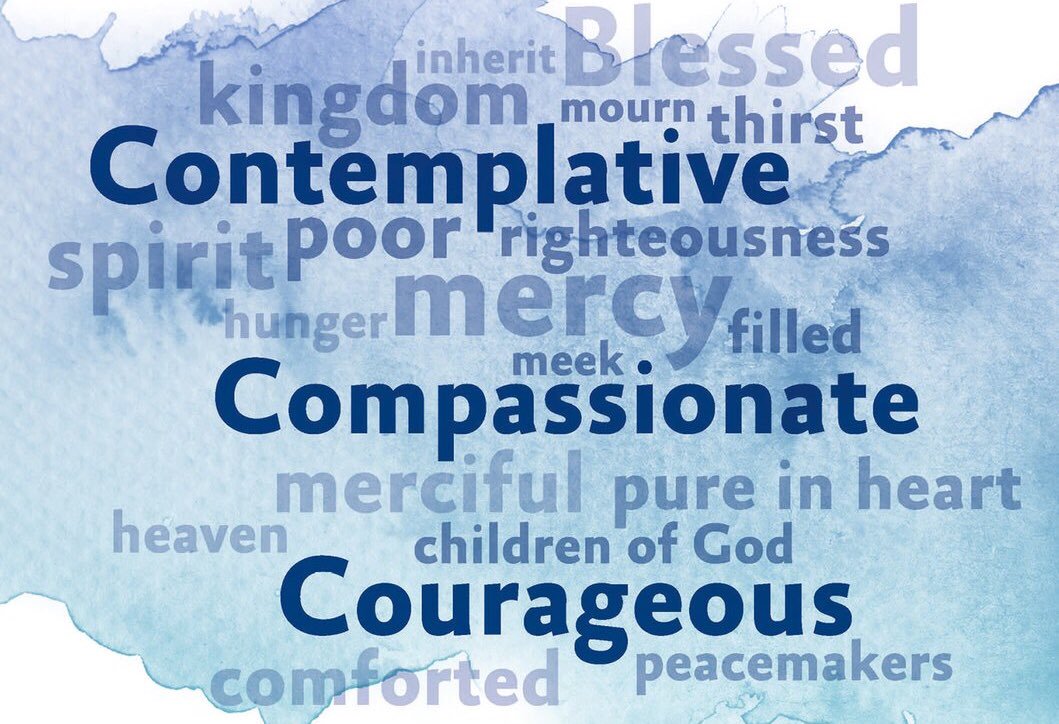CHAPTER 1 – LOVE ONE ANOTHER
“And what is a merciful heart? It is the heart’s burning for the sake of the entire creation, for men, for birds, for animals, for demons, and for every created thing; and by the recollection and sight of them the eyes of a merciful man pour forth abundant tears.” -St. Isaac of Syria
“Love alone is capable of uniting living beings in such a way as to complete and fulfill them, for it alone takes them and joins them by what is deepest in themselves.” -Pierre Teilhard De Chardin
Love one another as Christ first loved us. This commandment isn’t just a rule; it’s the very essence of who we are. We envision ourselves as a community defined by a merciful heart, sharing our lives while striving to embody the Beatitudes, the Two Great Commandments, and the New Commandment as a living example of the Christian way of life. Freely accepting the Rule and the disciplines that guide our life together, we undertake this journey as consenting adults. Together, we support and challenge one another, fostering growth and a deeper awareness of God’s presence within ourselves, in each other, and in the wider world.
Inspired by an evangelical spirit and embracing an ecumenical outlook, our community celebrates the richness of the Sacraments within the Christian faith. We practice a generous orthodoxy, welcoming a diversity of beliefs among those who share the core tenets of Christianity. Our members come from all walks of life – single, married, partnered, or celibate – each living a monastic life adapted to their unique circumstances. Open to both laity and clergy, we draw people from various Christian traditions, united by the ideal of a shared monastic life that sees the Church as a community, not a collection of separate entities. Our hope and our prophetic vision is for this family of love to become a model for Christian living, inspiring others around the world.
Our monastic life isn’t confined to physical walls; it’s a relational connection built on a shared faith, hope, love, and mercy. We may have central gathering places like an abbey, chapter houses, ministries, or churches, but our true focus is on fostering a community without walls, built on interdependent relationships.
True to St. Isaac of Syria’s merciful heart, we actively strive to offer mercy and compassion throughout our broken world. We welcome all seekers yearning for a deeper connection with God and their neighbors. We are open to anyone who desires to join us in living an intentional life through shared worship, work, and continued education. Jesus is our example; the Gospel is our Rule; Love is our Law.
We understand that divine love requires both compassion and truth. Through a balanced life of prayer, study, and service, we ensure our love is grounded in scripture and guided by God’s will. This love manifests in a generous orthopraxy characterized by mutual respect, charitable consideration, and a willingness to listen attentively to one another.
On the day of Pentecost the Spirit moved upon the apostles giving them the ability to communicate with those who spoke different languages and who were from different cultures and understandings. Welcoming them by sharing the Gospel message in a way they could understand, the apostles led them to repentance and baptism. It is in that spirit that we attempt to understand those who may speak a different language than we do, a language which gives voice to their distinct experience. It is with the gift of “speaking in tongues” that we try to sort out our differences while listening with a merciful heart.
Our generous orthodoxy celebrates the richness of various faith traditions. We view all religions through a Christian lens, trying to find commonality where it exists and understanding where it doesn’t. Similarly, we see Christian denominations as branches from the same catholic or universal tree, each with unique traditions and expressions. Finally, we approach all religious and monastic traditions with an ecumenical spirit, fostering dialogue and cooperation. Sacramental Christianity is our foundation, but we acknowledge the diversity of Christian traditions around us. This awareness compels us to be active listeners, allowing thoughtful dialogue to guide our interactions.
Our Community aspires to be a model of reconciliation and hospitality, in essence, what it means to lead a Christian life . We embrace seemingly opposing calls of solitude and community, contemplation and active faith, that create for us a balanced religious life. We also believe that diverse life situations can coexist within a unified spiritual family. While some may not find a permanent home with us due to seemingly irreconcilable differences, we extend a warm welcome nevertheless. Our metaphorical, if not physical door is always open, to a welcoming safe space to share gifts, insights, and learn from each other, despite our differences.
We affirm the inherent goodness of all creation and humanity. Yet, our Community chooses a distinct path. We live as an alternative society, existing alongside modern secular society, but not necessarily conforming to it. Inspired by the new monastic movement, we strive to be a beacon of renewal and reform within the Christian Church and the larger community in which we live..
Bound by love for Jesus Christ, we function as a spiritual family. Elected servant leaders guide us, fostering interdependence – a supportive network where we rely on each other’s strengths – rather than codependence or isolation. This spirit of family extends beyond our walls, embracing the wider Church, all of humanity, and the entirety of creation.
Our mission is straightforward: to embody the life of Christ and his apostles. We strive to seamlessly blend seemingly opposing concepts into a unified and vibrant expression of our faith. Deeply committed to serving Christ, the Church, and the world, we dedicate our lives to revealing God’s glory in everything around us. Through our actions, words, and worship, we become living testaments to Christ’s presence, a reflection of heaven on earth, a vision that grows ever closer with each passing day.
Scriptural Support
For when one says, “I follow Paul,” and another, “I follow Apollos,” are you not mere human beings? What, after all, is Apollos? And what is Paul? Only servants, through whom you came to believe—as the Lord has assigned to each his task. I planted the seed, Apollos watered it, but God has been making it grow. So neither the one who plants nor the one who waters is anything, but only God, who makes things grow. The one who plants and the one who waters have one purpose, and they will each be rewarded according to their own labor. For we are co-workers in God’s service; you are God’s field, God’s building. 1 Cor. 3:4-9 (NIV)
If I speak in the tongues of men and of angels, but have not love, I am a noisy gong or a clanging cymbal. And if I have prophetic powers, and understand all mysteries and all knowledge, and if I have all faith, so as to remove mountains, but have not love, I am nothing. If I give away all I have, and if I deliver my body to be burned, but have not love, I gain nothing.
Love is patient and kind; love is not jealous or boastful; it is not arrogant or rude. Love does not insist on its own way; it is not irritable or resentful; it does not rejoice at wrong, but rejoices in the right. Love bears all things, believes all things, hopes all things, endures all things. 1 Cor. 13:1-7 (RSV)
Jesus said, “My mother and my brothers are those who hear God’s word and put it into practice.” Luke 8:21 (NIV)
For just as the body is one and has many members, and all the members of the body, though many, are one body, so it is with Christ… Now you are the body of Christ and individually members of it. 1 Cor. 12:12,27 (NRSV)
Now there are varieties of gifts, but the same Spirit; and there are varieties of service, but the same Lord; and there are varieties of working, but it is the same God who inspires them all in every one. To each is given the manifestation of the Spirit for the common good.
. . .Now you are the body of Christ and individually members of it. And God has appointed in the church first apostles, second prophets, third teachers, then workers of miracles, then healers, helpers, administrators, speakers in various kinds of tongues. . . . Earnestly desire the higher gifts. 1 Cor. 12:4-7,27,28,31 (RSV)

